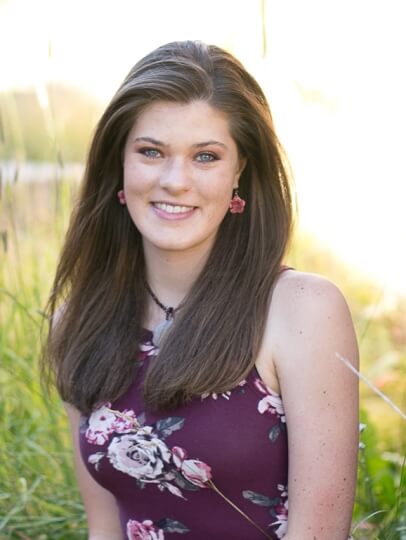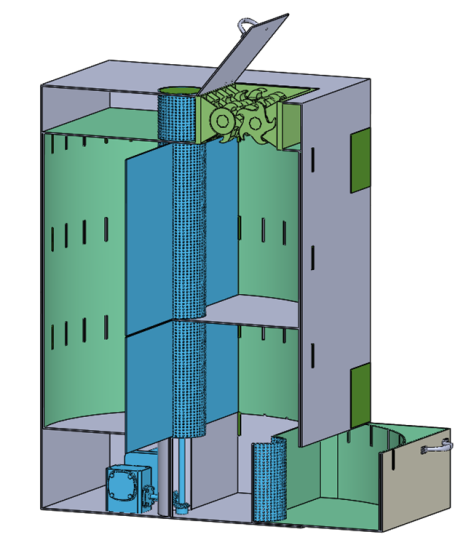Engineering Design Projects (ES 100), the capstone course at the Harvard John A. Paulson School of Engineering and Applied Sciences, challenges seniors to engineer a creative solution to a real-world problem.
Automated and Self-Contained Aerobic Composter for Home Use
Eileen Egolf, S.B. ’21, environmental science and engineering
Please give a brief summary of your project.
My project is an automated and self-contained aerobic composter for home use. This composter is intended to be placed in home kitchens like a trash can and facilitates the aerobic decomposition of all non-meat and non-dairy food waste. The design allows users to input waste on a continuous basis without disturbing the composting process. The composter can produce finished compost in about 6-15 weeks, depending on the rate of waste production in a household and the density of that waste.
What was the inspiration for this project?
I am passionate about the environment and the idea of reducing my personal footprint. I am always trying to find ways to reduce the environmental impact of my daily lifestyle. Habits surrounding food use and waste provide an opportunity to significantly reduce one’s daily footprint and I am very interested in how the food system can be altered to reduce environmental impact. Food waste in particular has a significant negative environmental toll. In choosing a project to pursue for ES 100, I naturally gravitated towards something that could have a positive environmental impact and was drawn to addressing food waste as a preexisting area of interest.
A cross sectional view of the CAD model of Egolf's composter.
How will this project help solve the problem you identified?
When food waste decomposes in a landfill, it decomposes anaerobically producing significant amounts of greenhouse gasses. However, when food waste decomposes aerobically, as it does during aerobic composting, far fewer total greenhouse gasses are produced. Thus, if used widely in residential households, the composter could significantly reduce the greenhouse gas emissions and associated environmental impact of food waste.
What were the biggest challenges of this project?
Finding time to fit all the work in amidst a full class schedule is of course always a challenge! However, there were some unique challenges trying to pursue a thesis in a remote setting. I had to be creative when trying to design physical testing with limited resources and had to be strategic in selecting measurements I could perform without access to lab equipment. Gathering the data I needed required a great deal of effort but was worthwhile for the results.
What did you learn through this experience?
I learned that I could accomplish what I set out to do. At the beginning of the fall semester, taking on this project felt like a monumentally impossible task. It wasn’t until after the final presentations and report submissions that I realized I had crossed a finish line that felt impossible to reach. Over the course of the project I was also exposed to wide variety of new tools and methods. Beyond the knowledge I gained in the topic itself, the skill I was able to develop with the new tools and methods I used are invaluable. ES 100 was largely one of the most valuable academic experiences I have had in my four years at Harvard.
Press Contact
Adam Zewe | 617-496-5878 | azewe@seas.harvard.edu

